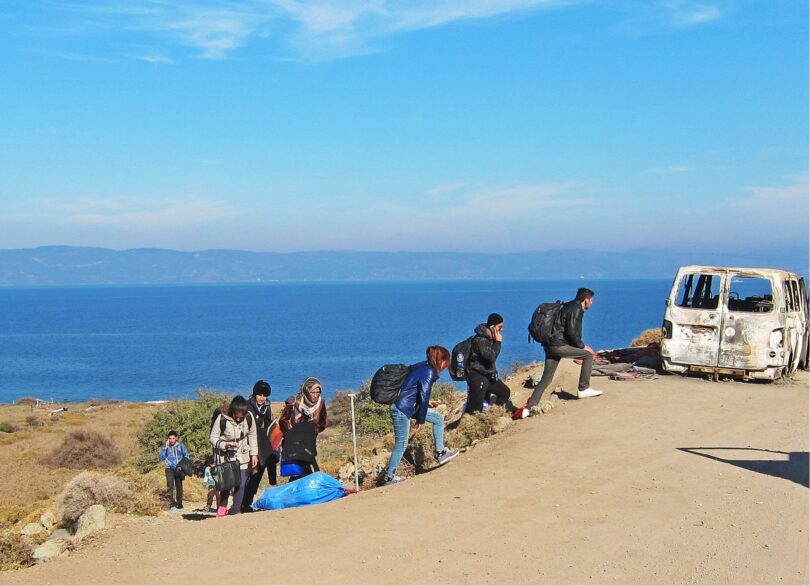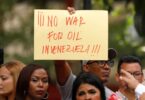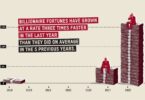By the end of 2022, almost 110 million people had been forced to leave their homes. Of these, at least 27 million are refugees which is roughly the equivalent of Australia’s population.
We welcome the way in which European societies, including Moldova, have opened their doors to millions of Ukrainian refugees.
At the moment there are almost 110,000 refugees from Ukraine in Moldova. However, only 4500 of them have been granted Temporary Protection (TP) status, which is only about 4%.
The situation of the remaining 96% of refugees is uncertain, especially given the Decision No 68 of 10 May 2023 of the Commission for Exceptional Situations which limits the rights of displaced persons, including the right to work, the right to education, the right to legal protection, the right to social and medical protection.
At the same time, we cannot fail to notice that European societies, including the Moldovan one, have not welcomed equally all groups of refugees.
The segregation of Ukrainian Roma refugees in the Republic of Moldova at border crossings, in refugee centres, in access to services and protection still remains a shameful reality.
Also, the differentiated response to refugee flows by European countries has created the legitimate perception that there is a hierarchy of refugees, where some groups of refugees are treated better and others worse (obviously, refugees are not to blame for this differential treatment).
Thus, while Europe is making considerable and commendable efforts to integrate Ukrainian refugees, thousands of Syrian, Pakistani, Libyan, Afghan refugees are still drowning in the waters of the Mediterranean Sea trying to reach Europe. They are still fleeing wars, poverty and violence.
Thousands more refugees are not allowed to enter the EU at the border between Poland and Belarus.
Moreover, the national authorities of European states, together with some supranational EU institutions – such as the Frontex Agency – not only do not allow refugees to enter EU territory, but also intimidate volunteers and organisations that are helping refugees in Latvia, Poland, Italy, Greece, Spain, Croatia, Malta, France, Switzerland, the UK, etc.
This criminalisation of these humanitarian efforts not only deprives refugees of necessary support but also undermines the efforts and energy of European societies to live and work in accordance with the universal values of solidarity and selfless help for people in need.
We reject hierarchy and differential treatment of refugees. Every refugee, regardless of ethnicity, gender, skin colour, country of origin, beliefs or status must be treated with dignity and respect and have access to protection.
Globally, the resources allocated to assist refugees are insufficient. At the moment (June 2023), only 22% of this year’s resource needs for refugees have been allocated.
This figure is even lower in the world’s poorest countries – just 6.8% in Jordan, 11% in Syria, 13% in Uganda and 15% in Chad.
At the same time, according to Save the Children, 14 countries that host more than half of the world’s refugee population are paying out money to service foreign debts that would be enough to cover the cost of educating refugee children for up to five years. These debts must be forgiven. The education of refugee children should take priority over the interest of creditors.
On World Refugee Day, marked annually on 20 June, we condemn the violence, persecution and war that force millions of women, men and children to flee their homes and we highlight their courage, strength and determination to seek refuge…
We call on societies and states, including the state of Moldova:
– To contribute to the legalization of migrants and refugees.
– To make accessible the right to social housing, education, health, legal support and assistance, the right to residence, the right to work and social protection, the right to a healthy environment for all persons, regardless of their migration status.
– Provide refugees not only with the right to work but also with rights at work, i.e. the right to safe working conditions, equal pay for work of equal value and social protection. National authorities must also ensure and respect the rights of refugees to association, including in trade unions, and collective bargaining.
– Create accessible public services for migrant and refugee communities.
– Allocate funds to ensure the social cohesion of host societies and refugee communities.
– Rebuild and refurbish unused buildings to house homeless people.
– Reallocate money, both from local and international funds, to health systems, education, childcare, community centres and services, psychological care and support services for survivors of abuse and violence.
– Stop the criminalisation of humanitarian support for refugees and migrants through intimidation of NGOs and activists providing services to refugees.
– Increase funding for assistance to refugees and vulnerable people in host societies.
The title of this post was taken from the poem Home by British-Somali poet Warsan Shire.
Featured image: Pixabay









